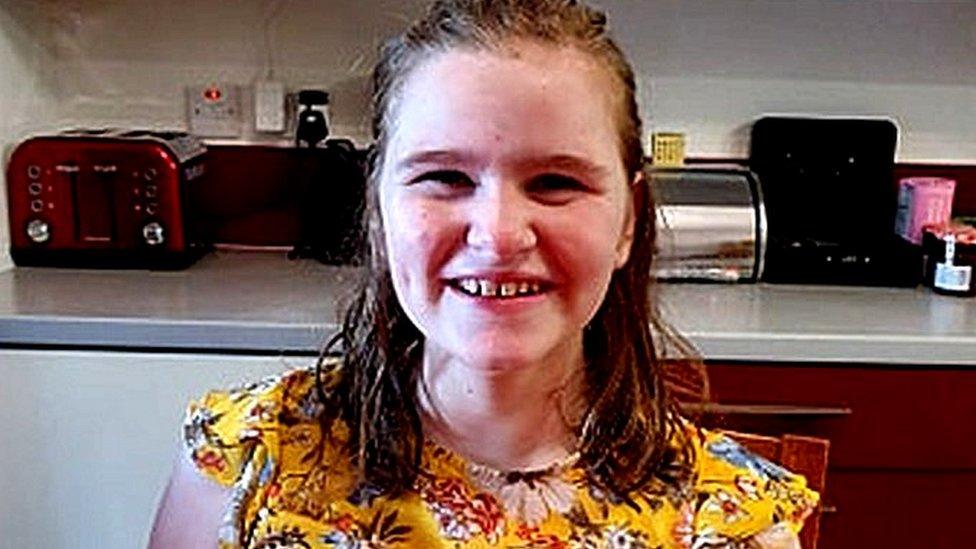Coronavirus: Autism makes coping with lockdown 'extra hard'
- Published
Stuart Cosgrove on lockdown with his autistic son
Radio presenter Stuart Cosgrove admits lockdown has been hard on his son Jack.
The bright eight-year-old has autism and has found it difficult to grasp his new situation. His mum and dad have also found it hard to cope.
They are not alone in their predicament - BBC Scotland has learned that calls to a helpline run by Scottish Autism have gone up by a third since the order to stay at home.
Vital routines for children with autism have been replaced with uncertainty.
Some parents are also saying they're being unfairly judged by people when they're out with their children.
Jack Cosgrove is an energetic boy, always on the go.
Playing on his favourite scooter in his back garden in Glasgow, he is drawn to the microphone like his Dad - BBC Radio Scotland Off The Ball star Stuart Cosgrove.
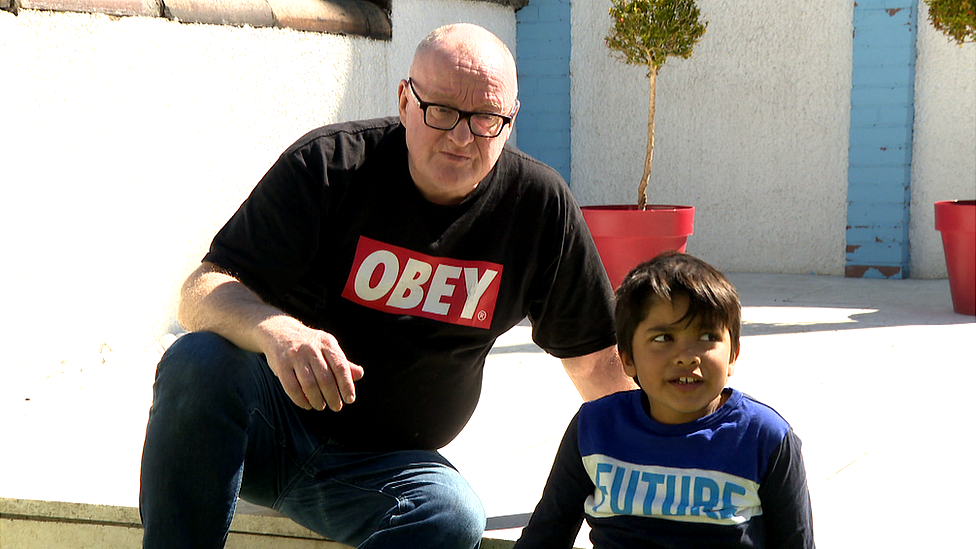
Stuart Cosgrove and his son Jack
Stuart says that, like many children who have spectrum challenges, Jack tends to be quite rigid in his thinking.
He said: "At the point at which he wants to do something, he will do it and at the point he doesn't want to do something he just simply won't.
"He has very rigid ways of expectation, even what learning is. To him learning is when you go into a classroom and a teacher tells you what to do next, so his mummy and his daddy can't really be his teachers because they are his mummy and daddy.
"So the rigidity is one of the biggest challenges for us."
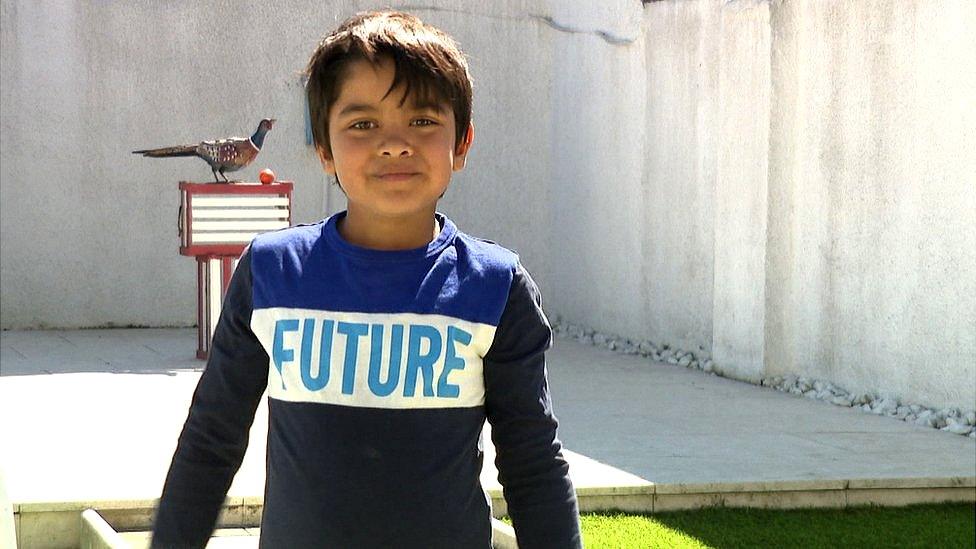
Jack is missing school and struggling with his new set-up
Those challenges are complex and vary enormously across the spectrum. Stuart describes Jack as "high functioning" and says he's thriving in mainstream education.
But that all stopped overnight when the schools were closed seven weeks ago. Jack misses his friends and can't understand why he can't go to school. Stuart and his wife have tried to maintain that important structure.
'Huge respect'
Stuart said: "In the end we are trying to do something we are not particularly trained to do. And probably doing it with the best intentions, but, let's be brutally honest, I turn up on a Saturday to do radio shows.
"I am not a teacher, but having to pretend I am, and making a wee bit of a dog's ass of it, but I am trying.
"When this all goes back to normal, if it ever does, I have always had huge respect for his school and his schooling experience and I will have more coming out of this."
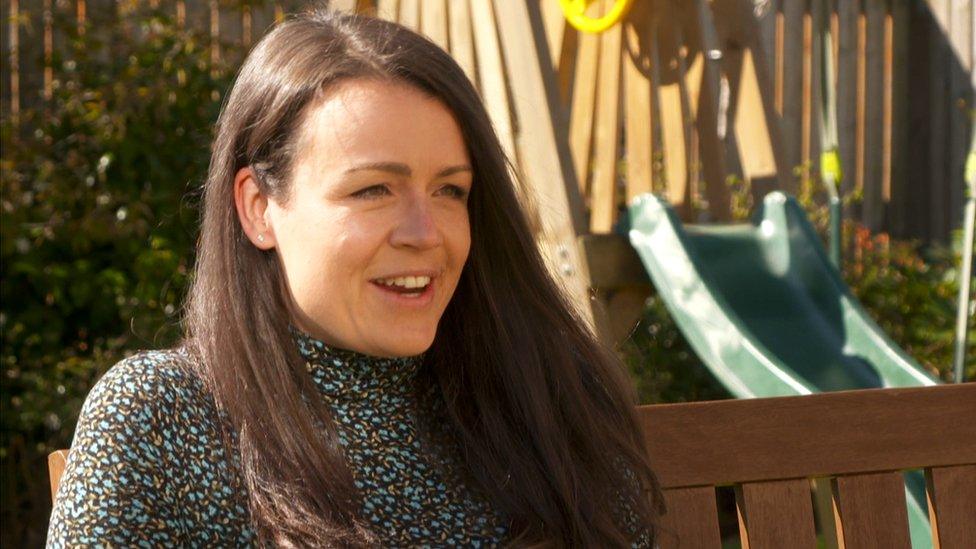
Natalie says her daughter Erin doesn't understand why she can't go to the playpark
The sun is shining in Aberdeenshire where six-year-old Erin is letting off steam in her garden.
Her mum Natalie says her normal coping strategies - swimming and going to the playpark are both now off limits.
She is struggling.
'Work has been lost'
Natalie said: "She doesn't really understand why she can no longer do those things so she will regularly ask to go there.
"It's not something she can really comprehend and she is in this constantly heightened state, because she can't regulate herself. So it means we deal with quite a few meltdowns throughout the day."
Something else that has stopped is the help Natalie was getting from her mum and dad who live nearby.
Pre-lockdown they were very much involved and now they can't be.
Natalie said; "I think its hugely damaging in terms of mental health, anxiety, isolation - all of the work we have put in to help get her started at school - she is Primary 1 - was huge and that work has all effectively been lost."
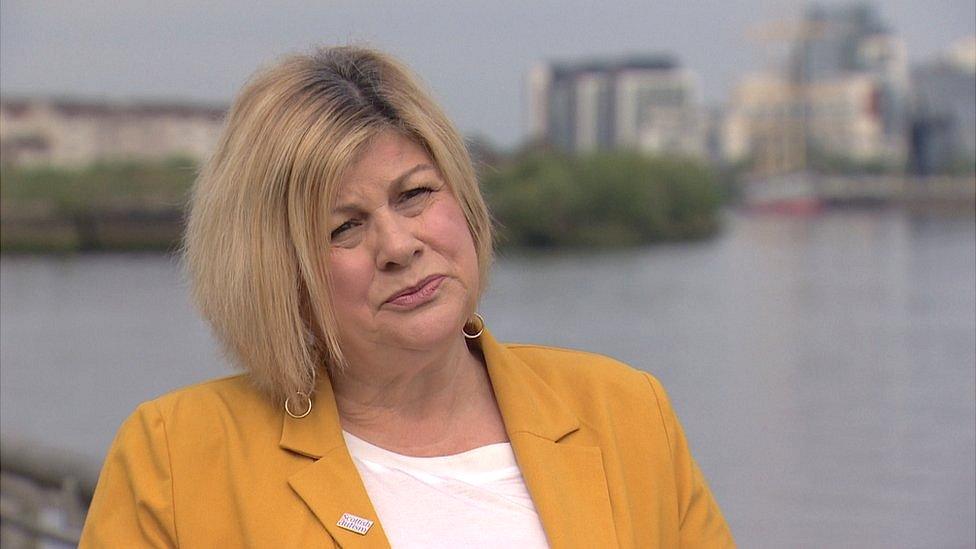
Charlene Tait from Scottish Autism has seen calls to her helpline rise by a third since lockdown began
The impact of lockdown on children on the autism spectrum is of concern for Scottish Autism.
Its deputy chief executive Charlene Tait, said: "There's a lot of stress and anxiety for autistic children themselves, which inevitably means there is a lot of stress and anxiety for the wider family.
"They are not seeing people who are familiar to them, they are not going to school and they are not accessing activities that perhaps punctuate their day and help them self regulate and calm.
"So there is a lot of impact."
- Published4 May 2020
